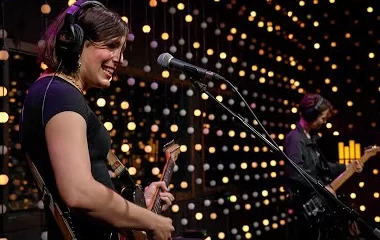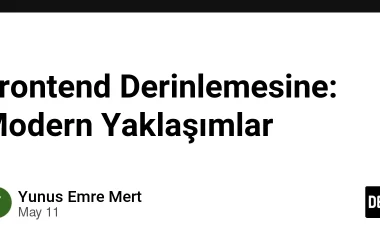
The first one I ever shared was short and a little uneven. I posted it on a quiet writing site and closed my laptop, sure no one would read it. When I checked the next day, someone had left a simple comment: I felt this. That was the moment I understood what writing could do. It could reach across distance and find someone I’d never meet. That one note gave me more courage than any lesson or book ever could.
Since then, I’ve tried to write with honesty instead of perfection. When I stopped worrying about sounding impressive, the words started to sound like me. They became clearer, smaller, and truer. The best poems, I think, are the ones that whisper instead of shout. They don’t tell you what to feel; they just make space for it.
Writing has also changed how I listen. Before, I rushed through everything — conversations, errands, even meals. Now I pay attention to rhythm: how people pause, how the wind moves through a tree, how silence feels between words. The world has its own kind of music if you slow down enough to hear it. I used to think creativity was about expression. Now I know it’s about noticing.
There’s something comforting about writing even when you don’t feel ready. You don’t need the perfect idea or a special place to start. You just need one quiet moment. Sometimes I write in the notes app on my phone while standing in line. Sometimes I write in the middle of the night, half-asleep, just to get a thought out of my head. The form doesn’t matter as much as the honesty behind it.
When I feel stuck, I read. Reading reminds me that every writer struggles. It also reminds me how many ways there are to see the same world. One poet can turn a window into a prayer, another can turn a shoe into a love story. That’s what I love about poetry — it shows how endless our small lives can feel when seen through words.
I’ve also learned that you don’t grow in silence. Growth happens when you share, when you let people see what you’ve made. I was nervous the first time I joined a writing group, but it ended up being one of the best choices I’ve ever made. Real feedback isn’t about judgment; it’s about connection. It’s someone saying, I hear you. Here’s how you might say it louder.
If you’ve been thinking about finding a safe space to grow, I’d suggest visiting this simple guide built for people who love poetry and want to grow as writers. It’s a reminder that community doesn’t take away the magic — it multiplies it.
There are still days when the page feels empty and the words sound dull. But that’s part of it. Poetry writing teaches patience. It reminds you that silence isn’t failure — it’s the soil where new ideas grow. When I can’t write, I look out the window or take a walk. I’ve learned that the act of living is also the act of preparing to write. The more you live, the more language has to hold.
Sometimes I go back to old notebooks and flip through pages I barely remember writing. Most of it isn’t great — half-thoughts, crossed-out lines, coffee stains, and things that don’t make sense anymore. But hidden in the mess, there’s always one phrase that catches me. A line that feels alive. It reminds me that even when I thought I was failing, I was still creating something worth keeping. The act of showing up always matters more than the outcome.
When I read those pages, I realize how much I’ve changed — not just as a writer, but as a person. The early poems were full of noise, like I was trying to say everything at once. Now my work is quieter. I leave more space between ideas. I’ve learned that meaning often hides in the pause, not the sentence. That’s something writing teaches you — how to listen for what isn’t being said.
There’s a kind of peace that comes with that. I used to fill silence because it scared me. Now I protect it. I’ll sit with a blank page for half an hour before writing a single word. Sometimes the silence is the work. You wait, breathe, and trust that something will arrive. It always does, but only when you stop chasing it.
I think about that when I’m out in the world, too. Poetry has changed the way I see everything. A puddle isn’t just water anymore; it’s reflection, distortion, memory. Streetlights aren’t just lights; they’re little moons hanging low enough to touch. It sounds dramatic, but that’s what writing does — it gives you new eyes. Once you start noticing, you can’t unsee the small miracles that fill ordinary days.
That’s why I never tell people they need special talent to write poems. You just need to care about what you notice. The rest comes later. The truth is, most of writing isn’t about language at all. It’s about emotion, patience, and courage. You don’t have to be wise to write something meaningful — you just have to be honest enough to tell the truth in your own words.
Honesty takes practice. I used to rewrite everything until it sounded polished and clever. Then I’d post it and feel empty. I finally realized I’d been sanding away the parts that made it mine. Now, I leave some rough edges. I let the awkwardness stay. The uneven rhythm, the strange image, the too-long pause — that’s where the life is. That’s what connects with people. The best writing feels human, not perfect.
Every time I share something new, I still feel a small wave of fear. But fear means I care. It’s proof that the words matter to me. And when someone reads it and says, “I understand,” that feeling washes all the fear away. Writing doesn’t always give you confidence first; it gives you courage after. You grow braver by doing it anyway.
There are moments, late at night, when I wonder why I keep doing this — why I keep pouring thoughts into lines no one asked for. But then I remember how it feels when the right words finally come. It’s not excitement exactly — more like relief. Like finding something you didn’t know you’d lost. It’s the quiet satisfaction of knowing that you captured something fleeting before it disappeared.
That’s what keeps me coming back. I don’t write for praise or attention. I write because it makes me feel more awake. It pulls me back into the present. It reminds me that the world is still worth describing, even when it’s messy or uncertain. When I finish a poem, I don’t think about whether it’s “good.” I think about whether it made me feel something real. If it did, then it was worth writing.
Sometimes, after posting a new piece, someone will message me and say, “This sounded like what I couldn’t say out loud.” That always stops me. Because that’s what writing really is — saying the quiet things out loud so someone else doesn’t have to. It’s how we recognize ourselves in each other. It’s how we bridge the spaces between us. That’s the gift art gives us — connection through courage.
I’ve learned that poetry isn’t just a creative act; it’s an act of remembering. Every line I write helps me remember how to see, how to feel, how to hope. When I forget who I am, I go back to the page. It’s always waiting. Writing is the one place where I never have to pretend. I can be uncertain, messy, curious — and it’s all allowed.
That’s why I tell anyone who’s hesitant to start: don’t worry about rules. You don’t need the perfect notebook or the right kind of pen. You don’t even need to call it a poem. Just start with what’s true. Describe one thing that caught your attention today. Write one sentence that feels real. The rest will come naturally. Poetry writing isn’t about talent; it’s about paying attention to your own life and learning to translate it into words.
Every time you do that, you learn a little more about yourself. You learn what matters. You learn what you’ve been avoiding. Writing is a mirror that shows you who you are when no one’s watching. It can be scary at first, but it’s also freeing. You realize you don’t have to have the answers — you just have to keep asking better questions.
That’s what I love most about this practice. It’s endless. There’s no final poem, no point where you’ve “arrived.” There’s just the next moment of curiosity, the next line that surprises you, the next chance to notice something new. It’s a lifelong conversation between who you are and who you’re becoming.
And on the days when I doubt myself, when I think maybe none of this matters, I remind myself of that first message I ever got: I felt this. That’s enough reason to keep going. One person felt something I wrote. That’s all I ever wanted — to make someone feel less alone.
So I’ll keep writing. Quietly, steadily, honestly. One line at a time. Because every word, even the small ones, is a way of saying, “I was here, and I cared.”
That’s all art really is — proof of attention. Proof of love. Proof of life.



